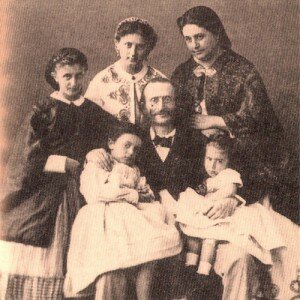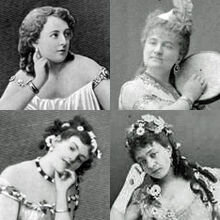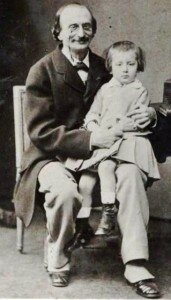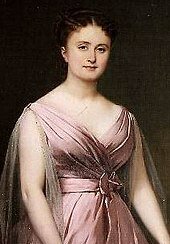“The only love affair I have ever had was with music.”
Maurice Ravel
The history of classical music, however, is full of fabulously gifted individuals with slightly more earthy ambitions. Love stories of classical composers are frequently retold within a romanticized narrative of sugarcoated fairy tales. To be sure, happily-ever-after stories do on rare occasions take place, but it is much more likely that classical romances lead to some rather unhappy endings. Johannes Brahms had an overriding fear of commitment, Claude Debussy drove his wife into an attempt at suicide, Francis Poulenc severely struggled with his sexual identity, and Percy Grainger was heavily into whips and bondage. And that’s only the beginning! The love life of classical composers will sometimes make you weep, or alternately shout out with joy or anguish. You might even cringe with embarrassment as we try to go beyond the usual headlines and niceties to discover the psychological makeup and the societal and cultural pressures driving these relationships. Classical composer’s love stories are not for the faint hearted; they are heightened reflections of humanity at its best and worst. Accompanying these stories of love and lust with the compositions they inspired, we are able to see composers and their relationships in a completely new light.
Let's start with Jacques Offenbach.
“Hérminie was right again”
Jacques Offenbach and Hérminie d’Alcain
by Georg Predota, Interlude

Offenbach’s family
Jacques Offenbach
abruptly discontinued his studies at the Paris Conservatoire
he gradually built a reputation composing for and performing in the fashionable salons of Paris. And at one of these cultured gatherings, his eyes fell upon a young Spanish woman by the name of Marie Manuela Hérminie d’Alcain. She was the daughter of the Carlist General José Maria Xavier d’Alcain Garro, who had been forced into French exile. The General died in 1828, and his wife Jeanne-Marie Céleste d’Alcain remarried Michael George Mitchell in 1835. Hérminie was barely 15 years of age but Jacques was determined to marry her. He dedicated a waltz to her in 1841, and a Romanze in 1843 as well. However, her family was not convinced that the young cellist was in any financial position to proposed marriage. As such, Michael George Mitchell arranged for a tour to England.
Offenbach’s leading ladies – Marie Garnier, Zulma Bouffar, Lea Silly, Rose Deschamps
Emile Chevalet
, “As you can imagine, music was played after dinner. I played my Musette, and the audience hammered on the table for at least five minutes and screamed “da capo,” so I was forced to repeat the piece.” A critic wrote, “Offenbach’s execution and taste excited both wonder and pleasure, the genius he exhibited amounting to absolute inspiration.” The highlight of the England tour was undoubtedly an invitation from Queen Victoria to perform at Windsor on 6 June 1844. The Illustrated London News reported, “Herr Jacques Offenbach, the astonishing violoncellist, performed on Thursday evening at Windsor before the Emperor of Russia, the King of Saxony, Queen Victoria, and Prince Albert with great success.” Offenbach’s tour of England was a rousing professional and financial success. He returned to Paris full of confidence and in anticipation of his marriage to Hérminie, but there was a further obstacle. Her family demanded that Jacques convert to Roman Catholicism.
Offenbach and his son Auguste

Hortense Schneider



